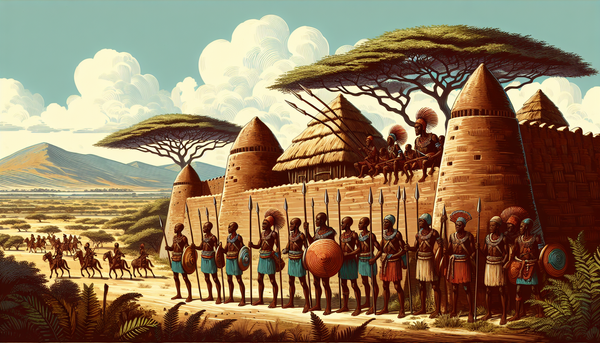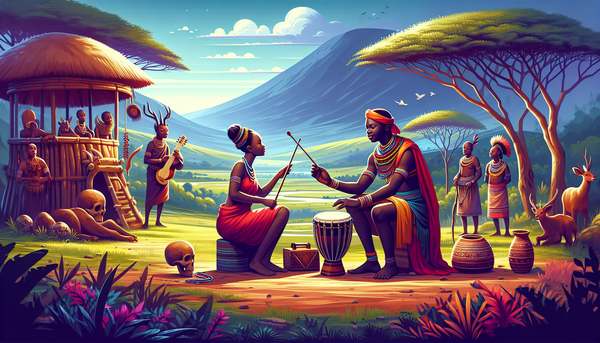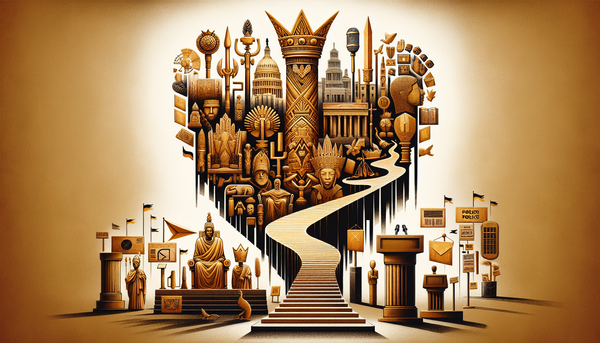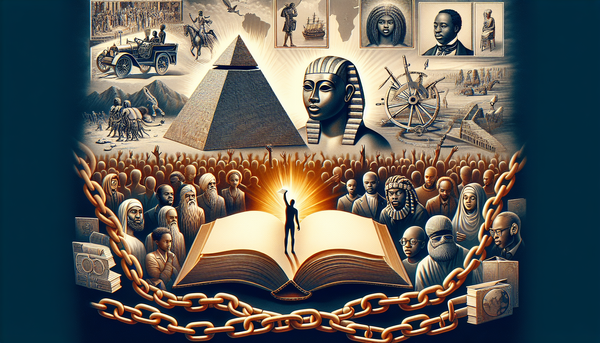The Influence of African Spirituality on Global Religions
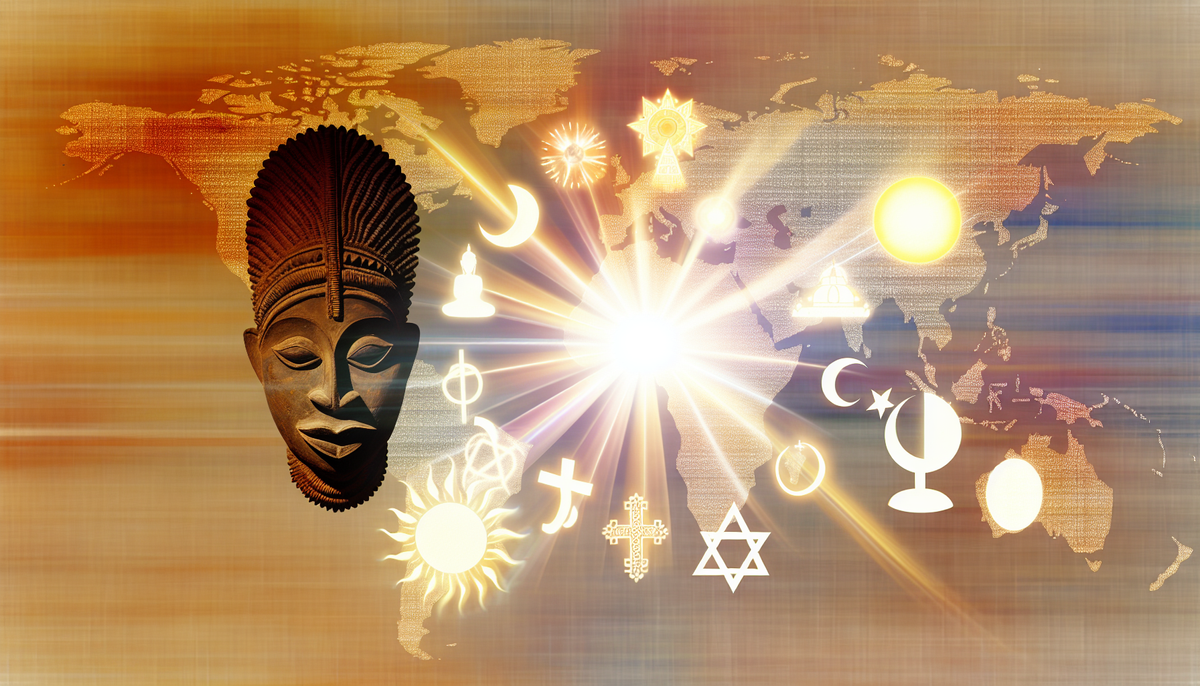
Origins and Evolution of African Spiritual Practices
African spirituality is a rich tapestry of beliefs, rituals, and philosophies that have developed over millennia across the continent. Its origins can be traced back to ancient societies, where spiritual practices were deeply intertwined with daily life and the natural environment. Early Africans believed in a supreme being, alongside a pantheon of deities and ancestral spirits who played key roles in the cosmos and human affairs.
As various kingdoms and empires emerged, such as the Kingdom of Mali and the Great African Empires, spirituality evolved and adapted, influenced by cultural exchanges and regional variations. Practices often included ritual sacrifices, divination, and communal ceremonies that served to connect individuals with their heritage and the spirit world.
The arrival of Islam in North Africa and later European colonization introduced new religious ideologies, challenging indigenous beliefs. Despite this, African spirituality often persevered, leading to a syncretic fusion of traditions that blended local practices with foreign influences. This resilience is exemplified in various modern religions, where African spiritual elements remain embedded in rituals and community practices, illustrating the enduring legacy of Africa's original spiritual traditions in a global context.
Impact on Contemporary Christian Rituals
The impact of African spirituality on contemporary Christian rituals is profound and multifaceted, reflecting a dynamic blend of indigenous practices and Christian beliefs. As Christianity spread across Africa, it encountered a rich tapestry of local traditions, which led to a unique syncretism. Many African communities embraced Christianity while retaining core elements of their spiritual heritage, resulting in distinctive rituals that resonate deeply within these cultures.
One significant aspect is the incorporation of music and dance in worship. Unlike traditional Western liturgy, many African Christian services are characterized by vibrant song, rhythmic drumming, and communal dancing. These elements serve not only as expressions of joy and celebration but also as a means to connect with the divine, much like in pre-Christian practices.
Furthermore, rituals surrounding birth, marriage, and death often reflect African customs intertwined with Christian significance. For instance, baptism ceremonies may include ancestral blessings, emphasizing the importance of lineage and community, while funeral rites incorporate traditional mourning practices alongside Christian prayers.
This fusion creates a unique spiritual experience that honors both the African heritage and Christian faith, illustrating how indigenous practices have enriched contemporary Christian rituals, reinforcing community bonds and a deeper sense of spirituality among believers.
Contributions to Islamic Mystical Traditions
African spirituality has significantly influenced Islamic mystical traditions, particularly within Sufism, which emphasizes the personal, experiential connection to the divine. As Islam spread into Sub-Saharan Africa, it encountered various indigenous beliefs and practices that shaped its integration and expression in the region. This cultural exchange fostered a rich spiritual milieu, where African customs were blended with Islamic tenets.
One prominent contribution is the concept of community and spiritual brotherhood, which resonates strongly in both African traditions and Sufism. The importance of communal rituals, such as dhikr (remembrance) and communal prayers, reflects indigenous practices that value collective spirituality. This has led to the formation of vibrant Sufi brotherhoods, or tariqas, which often incorporate local customs and languages into their spiritual practices.
Additionally, African mystics introduced unique forms of poetry, music, and dance as vehicles for expressing devotion and experiencing the divine. These artistic practices enhance the spiritual atmosphere during rituals, allowing practitioners to engage emotionally and spiritually.
Moreover, the reverence for ancestors in certain African cultures complements Islamic teachings on the respect and remembrance of saints, creating a harmonious blend. This synthesis not only enriches Islamic mystical traditions but also showcases the resilience and adaptability of faith in culturally diverse contexts.
Syncretism in Caribbean Religious Systems
Syncretism in Caribbean religious systems is a remarkable manifestation of cultural resilience, blending African spiritual practices with indigenous beliefs and European religions, particularly Christianity. The transatlantic slave trade brought millions of Africans to the Caribbean, where they were forced to adapt their spiritual traditions in the face of oppression. This led to the creation of rich, hybrid religious systems such as Vodou in Haiti, Santería in Cuba, and Obeah in Jamaica.
In these syncretic practices, African deities, known as orishas or lwa, were often associated with Catholic saints, allowing enslaved people to maintain their spiritual identities while outwardly conforming to colonial authorities. Rituals, ceremonies, and spiritual offerings reflect a fusion of African cosmologies with Catholic liturgical elements, where vibrant music, dance, and drumming play central roles in worship.
Moreover, ancestral veneration, a crucial aspect of African spirituality, permeates these Caribbean religions, emphasizing the connection to one's lineage and the spirit world. The collective memory of African heritage is preserved through storytelling, symbols, and rituals, serving as a source of strength and community cohesion.
This syncretism illustrates not only the adaptability of African-derived religious practices but also a profound resilience in celebrating identity, spirituality, and cultural continuity amid historical challenges.
African Concepts in Eastern Spirituality
African concepts have notably influenced various Eastern spiritual traditions, contributing to a rich tapestry of beliefs and practices that emphasize interconnectedness, community, and the holistic nature of existence. One of the key themes that resonates across both African and Eastern philosophies is the idea of a universal life force, often referred to as "chi" in Chinese culture and "prana" in Indian traditions. This parallels the African understanding of life energy, or "ashe," which reflects the belief that all living things possess an inherent spirit that connects them to the universe.
Additionally, the importance of ancestors is a profound concept shared between African spirituality and Eastern practices. In many African cultures, ancestors are revered as guardians and sources of wisdom, while in Buddhism and Hinduism, honoring ancestors and seeking their guidance is an integral part of spiritual practice. Rituals and ceremonies for remembering and connecting with ancestors embody the belief in an enduring relationship between the living and the spiritual realm.
Moreover, the communal nature of spirituality in African societies finds parallels in Eastern philosophies, where community and collective well-being are emphasized. This blending of ideas showcases the depth of cultural exchange across continents, highlighting the universal quest for understanding the spiritual dimensions of existence that transcends geographical boundaries.
Global Spread and Adaptation of African Rituals
The global spread and adaptation of African rituals is a testament to the resilience and dynamism of African cultures. Following the transatlantic slave trade, African rituals were forcibly transported to the Americas, where they evolved and blended with indigenous and colonial traditions. In this new environment, practices such as Vodou, Santería, and Candomblé emerged, preserving core African values while adapting to the new socio-cultural contexts.
These rituals often incorporate vibrant music, dance, and community celebrations, serving as both spiritual expressions and forms of resistance against oppression. The syncretic nature of these practices highlights their adaptability—in Vodou, for instance, African deities are associated with Catholic saints, allowing practitioners to maintain their spiritual identities under colonial rule.
Additionally, the African diaspora has facilitated the global dissemination of these rituals. Festivals, workshops, and spiritual gatherings around the world celebrate African heritage, attracting participants from diverse backgrounds who seek connection, healing, or understanding. This contemporary engagement fosters a greater appreciation for African spiritual traditions, encouraging cultural exchange and mutual respect.
As a result, African rituals continue to adapt and thrive globally, affirming their relevance and vitality in the face of historical challenges and modernity.
Influence on New Age and Esoteric Beliefs
African spirituality has significantly influenced New Age and esoteric beliefs, contributing rich symbols, rituals, and philosophies that resonate with practitioners seeking spiritual awakening and holistic healing. Elements such as ancestor veneration, connection to nature, and the concept of life force energy have found their way into New Age practices, often emphasizing a holistic understanding of health that integrates mind, body, and spirit.
The reverence for ancestral spirits in African traditions parallels the New Age emphasis on ancestral healing and lineage work. Many New Age practitioners seek to connect with their roots, drawing inspiration from African practices that honor the wisdom of ancestors. Similarly, the African concept of "ashe," or the life force that flows through all things, harmonizes with New Age beliefs around energy healing and the interconnectedness of all life.
Additionally, symbols and motifs from African spirituality, such as the Adinkra symbols from the Akan people, have been adopted within New Age aesthetics, often used to convey deeper philosophical meanings and promote personal growth.
The integration of African spiritual elements into New Age and esoteric beliefs highlights a growing appreciation for the diversity of spiritual traditions, fostering a multidimensional understanding of the human experience as seekers worldwide explore paths that resonate with ancient wisdom and contemporary insights.
